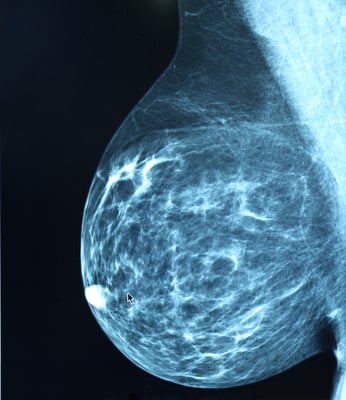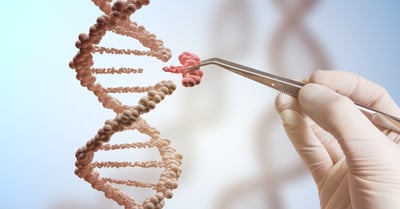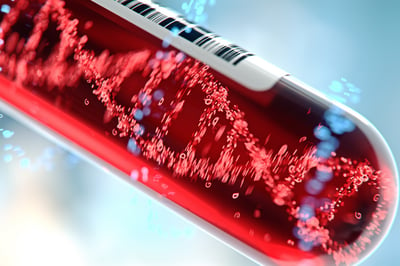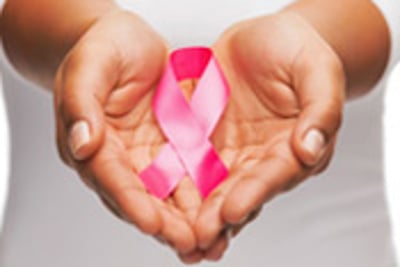FORCE's eXamining the Relevance of Articles for You (XRAY) program looks behind the headlines of cancer news to help you understand what the research means for you.
XRAY is a reliable source of hereditary cancer research-related news and information.
Learn more about the XRAY program
Keyword: African American
Relevance: High


Strength of Science: High


Research Timeline: Post Approval


Study : Should biannual MRIs replace annual mammograms in high-risk women?
Relevance: High


Strength of Science: High


Research Timeline: Post Approval


Most relevant for: Women at increased risk for breast cancer due to an inherited mutation
The risk of breast cancer is exceptionally high in women who have a personal or family history of breast cancer or who carry a mutation in BRCA or certain other genes. More frequent screening is one strategy for early detection of breast cancer for these women. Study results presented at the 2017 San Antonio Breast Cancer Symposium suggest that MRI screening every 6 months may be more effective than the currently recommended annual breast MRI and annual mammogram in detecting early stage breast cancers-which are more treatable-in high-risk women. (2/1/18)
Read More
Relevance: Medium-Low


Strength of Science: Medium-Low


Research Timeline: Human Research


Study : No new high-risk breast cancer genes here
Relevance: Medium-Low


Strength of Science: Medium-Low


Research Timeline: Human Research


Most relevant for: People with a family history of breast cancer but no known inherited mutation
While some of the genes that cause hereditary breast cancer are known (for example, inherited mutations in genes like BRCA, ATM and PALB2), others remain unidentified. Two studies found 72 DNA changes (also known as “variants” or “SNPs”) that affect breast cancer risk. These variants are different from mutations in genes that dramatically increase cancer risk. Most of these new variants are located outside of the portion of DNA that is used to make proteins. Further research is needed on these new variants before they can be used by doctors to help people understand and manage their risk for cancer. (1/12/18)
Read More
Study : Alcohol and breast cancer risk in African American women
Most relevant for: African American women who would like to lower their breast cancer risk
The link between alcohol intake and breast cancer is well known, but most studies have involved only White women. Recently, a large study of more than 22,000 African American (AA) women found that similar to White women, increased alcohol consumption is associated with a greater risk of breast cancer. (10/27/17)
Read More
Relevance: Medium-High


Strength of Science: Medium


Study : Beauty and the breast: hair product use and breast cancer risk
Relevance: Medium-High


Strength of Science: Medium


Most relevant for: Women who use hair products who are concerned about their risk for breast cancer
Past studies using mostly animal models showed a link between use of hair products (dyes, straighteners and relaxers) and increased risk of certain cancers. In this study, researchers looked at data on hair product use among African-American (AA) and White women to see if certain types of hair products increased breast cancer risk, and how that risk might differ between race and breast cancer hormone status. (9/27/2017)
Read More
Study : Friends and family may help breast cancer survival
Most relevant for: People diagnosed with breast cancer
Does having a large social network help breast cancer survivors have better outcomes? Research from the current study found that socially isolated breast cancer survivors had an increased risk of recurrence and breast cancer-specific mortality. (3/16/17)
Read More
Relevance: Medium-High


Strength of Science: Medium


Research Timeline: Post Approval


Study : Rare mutations in PALB2, CHEK2, and ATM: how much do they increase cancer risk?
Relevance: Medium-High


Strength of Science: Medium


Research Timeline: Post Approval


Most relevant for: People who tested positive for one of the rare variants in CHEK2, ATM or PALB2 that are covered in this study
As multi-gene panel tests become more common, people are discovering they have mutations in genes that are not understood as well as BRCA. This can make it difficult to give patients accurate assessments of their cancer risk. For example, mutations in PALB2, CHEK2, and ATM are rare, but some specific changes in these genes are even less common. The goal of this international collaboration was to better understand the cancer risks of some very rare PALB2, CHEK2, and ATM mutations. The findings are relevant only to the specific mutations covered in this paper and do not apply to all people with mutations in PALB2, CHEK2, or ATM. (9/27/16)
Read More
Relevance: Medium


Strength of Science: Medium-High


Research Timeline: Post Approval


Study : What are the genetics underlying 12 different cancer types?
Relevance: Medium


Strength of Science: Medium-High


Research Timeline: Post Approval


Most relevant for: People diagnosed with cancer
As gene sequencing has become more affordable, researchers and health care providers are now looking for mutations in many genes beyond BRCA1, BRCA2 and others that are associated with known hereditary cancer syndromes. By sequencing thousands of genes rather than just one or two, researchers can better understand which inherited mutations affect cancer risk. In this study, researchers sequenced thousands of genes in patients with one of 12 cancers, including breast, and catalogued which gene mutations are most commonly found in each cancer. (03/01/16)
Read More
Relevance: High


Strength of Science: High


Research Timeline: Post Approval


Study : BRCA mutations more common than expected in young black women with breast cancer
Relevance: High


Strength of Science: High


Research Timeline: Post Approval


Most relevant for: Young black women who have been diagnosed with breast cancer
Most estimates of the percentage of breast cancer patients with mutations in BRCA are based on studies in White women. These researchers found that Black women diagnosed at a young age with breast cancer were twice as likely to have a BRCA mutation than previously reported based on studies in White women with breast cancer diagnosed in the same age categories. This study shows how important it is for all Black women diagnosed with breast cancer before age 50 to speak with their doctor about genetic counseling and testing. (9/29/15)
Read More
Relevance: Medium-High


Strength of Science: High


Study : All DCIS is not the same: Young women and African American women at higher risk after DCIS diagnosis
Relevance: Medium-High


Strength of Science: High


Most relevant for: Women diagnosed with DCIS
Diagnoses of ductal carcinoma in situ (DCIS), sometimes called stage 0 breast cancer, have increased in recent decades. Many people with DCIS wonder if they need aggressive treatment. A study looking at the survival of over 100,000 women found that breast cancer mortality after DCIS is low (3%), and identified groups of women who are at higher risk after DCIS. (9/8/15)
Read More